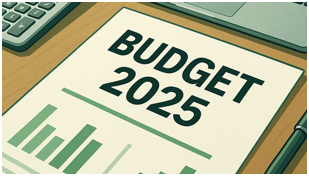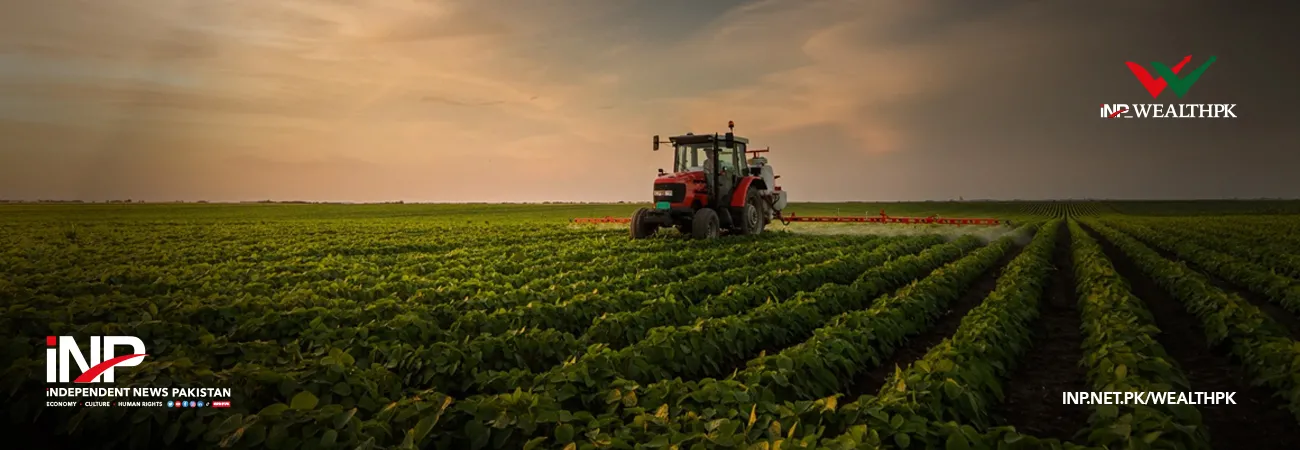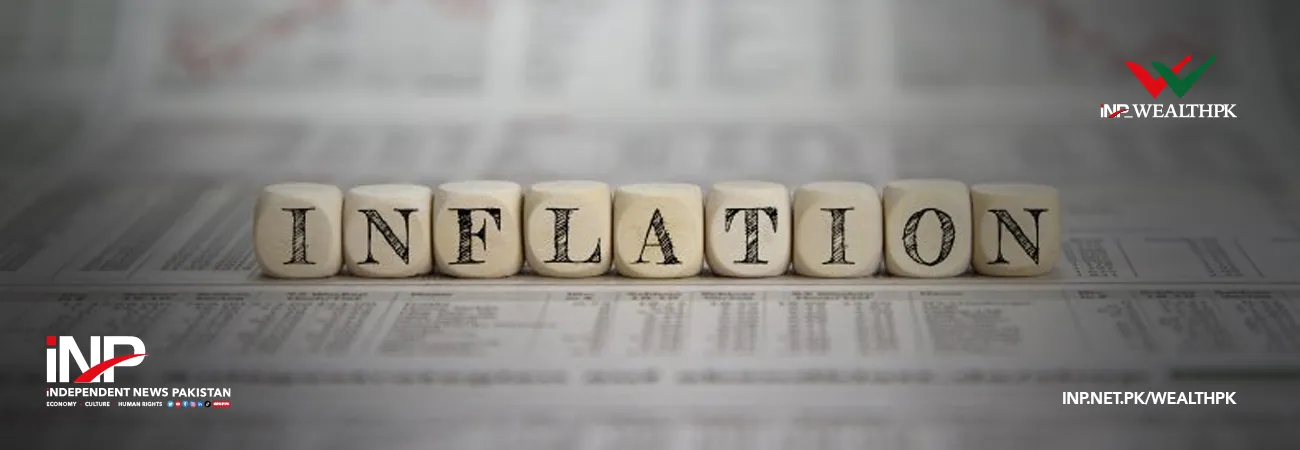INP-WealthPk
Azeem Ahmed Khan
Pakistan Kissan Ittehad Chairman Chaudhry Haseeb Anwar, while reacting to the federal budget 2025-26, has expressed disappointment over the complete neglect of the agricultural sector.

“This budget offers absolutely nothing for the farmers. We have not even been given symbolic relief, not even a lollypop,” he claimed.
Anwar criticised the government for ignoring the dire state of agriculture, which contributes 24% to the country’s GDP. Farmers across Pakistan have faced losses on every crop for the past two consecutive years, and they were expecting meaningful support from the government, “but agriculture, the backbone of the economy, has been entirely overlooked in this budget,” he said.
Commenting on the government’s announcement to provide Rs100,000 unsecured loans to small farmers, he questioned the practicality of the measure. “Whoever proposed this policy has little understanding of farming realities because even low-cost crops like wheat now require more than Rs100,000 per acre due to high production cost.”
Commenting on crops such as cotton, maize, and sugarcane, which traditionally have high production costs, he pointed out that their current per-acre cost has now surpassed Rs200,000. “This makes the proposed loan ineffective in addressing farmers’ needs, or supporting the development of the agriculture sector,” he added.
Highlighting last year’s wheat crisis, Anwar said, “Independent sources estimate that Rs2.2 trillion were extracted from the economy, especially the agriculture sector, due to low returns. The farmer is financially unfit to cultivate the next crop,” he added.
This year, the cost of producing one maund of wheat was around Rs3,200, while the farmer sold it in the market from Rs1,900 to Rs2,100 per maund only, he pointed out.
He stated that with an average yield of 35 maunds per acre, farmers are facing losses of approximately Rs40,000 per acre. “It is deeply unjust that those drafting agricultural policies have little to no understanding of the sector,” he said.
Commenting on the government’s initiative to distribute free tractors, Anwar noted that with around 65% of the population engaged in agriculture, the scheme’s limited reach is inadequate. “Would it not have been more effective to utilise these funds for purchasing wheat at fair prices, announce fair support prices, and provide subsidies on fertilizers and seeds?” he questioned.
He also criticised the contradictory taxation policies, saying a carbon levy of Rs2.50 per litre has been imposed on diesel, supposedly to encourage the shift to alternative energy, yet solar panels now carry an 18% general sales tax. “This sends a mixed message that the policymakers clearly lack a coherent strategy,” he remarked.
The entire world is shifting on solar energy and Pakistan government has imposed 18% GST on it, he said. The price of a solar panels has now already been increased by Rs5,000 per panel, he added.
Anwar said agricultural input costs are rising every year, with DAP fertilizer currently priced at Rs12,500 and urea at Rs4,500 per bag. Farmers are unable to recover these costs even after selling their entire crop, so under the current circumstances, the government should exempt these essentials from taxes, he added.
Criticising the contradictory stance of the government, he said that while there is talk of purchasing produce at international prices, farmers remain heavily burdened by taxes, a situation that will only further damage the agriculture sector.
Referring to last year’s surplus wheat crop, he said the government missed an opportunity to export it and earn foreign exchange, which could have also benefited farmers. Instead, the government focuses solely on exporting surplus sugar, while ignoring excess wheat and other crops, he claimed.
When asked about the use of credit cards to purchase petroleum products at discounted rates, he pointed out that in rural areas, poor mobile network coverage makes such systems impractical. Illiterate farmers cannot use these digital payment methods, and the scheme will primarily benefit petrol station owners, he added.
On the issue of cotton, the Pakistan Kissan Ittehad chairman criticised the imposition of an 18% GST on locally produced cotton while imported cotton for textile mills remains tax-free. He said this policy renders domestic cotton uncompetitive, hurting local farmers and discouraging efforts to boost yields.
He also highlighted the unaffordability of basic farm machinery, noting that an average tractor now costs around Rs3 million, a price beyond the reach of most farmers.
Anwar observed that farmers are already struggling with soaring input costs and the adverse effects of climate change, while agricultural productivity continues to decline. “This tax-heavy budget, lacking in vision, offers no hope for the revival of Pakistan’s agriculture sector,” he lamented.
Credit: INP-WealthPk













